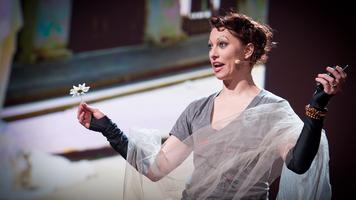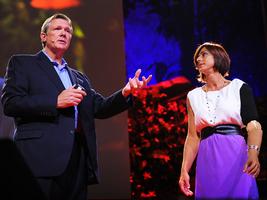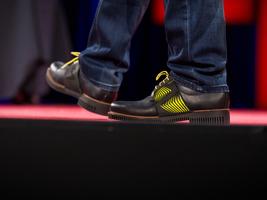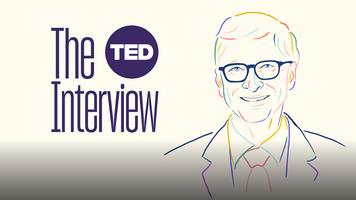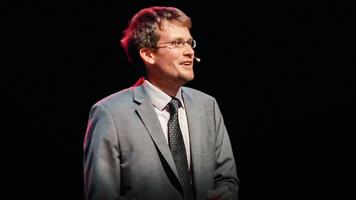Amanda Little: Climate change is becoming a problem you can taste
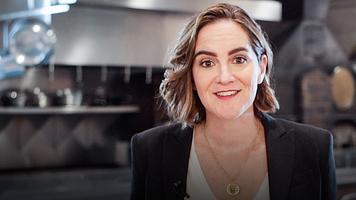
Our food systems have not been designed to adapt to major disruptions like climate change, says environmental journalist Amanda Little. In this eye-opening talk, she shows how the climate crisis could devastate our food supply -- and introduces us to the farmers, entrepreneurs and engineers who are radically rethinking what we grow and how we ea...
Amanda Palmer: The art of asking
Todd Kuiken: A prosthetic arm that "feels"
Amanda Renteria: A bold plan to transform access to the US social safety net
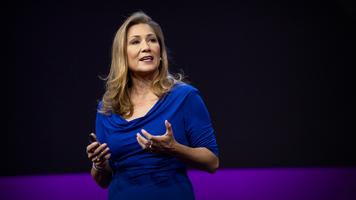
Digital public servant Amanda Renteria has seen that the millions of people who rely on government welfare services are often discouraged from seeking them out, frustrated by long lines and unnecessarily complicated processes. At Code for America, Renteria is helping develop human-centered technology that "respects you from the start, meets you ...
Amanda Gorman: Using your voice is a political choice
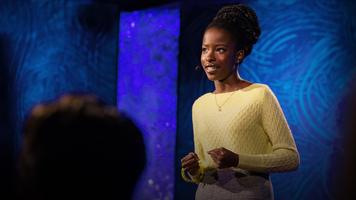
For anyone who believes poetry is stuffy or elitist, Amanda Gorman -- the youngest inaugural poet in US history -- has some characteristically well-chosen words. Poetry is for everyone, she says, and at its core it's all about connection and collaboration. In this fierce talk and performance, she explains why poetry is inherently political, pays...
Amanda Bennett: We need a heroic narrative for death
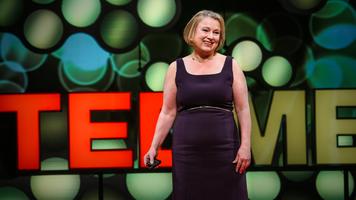
Amanda Bennett and her husband were passionate and full of life all throughout their lives together -- and up until the final days, too. Bennett gives a sweet yet powerful talk on why, for the loved ones of the dying, having hope for a happy ending shouldn't warrant a diagnosis of "denial." She calls for a more heroic narrative for death -- to m...
Amanda Schochet: How bumble bees inspired a network of tiny museums
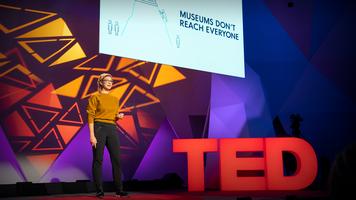
Sometimes, small things make a huge impact. After studying how bees in urban environments can survive by navigating small land patches, ecologist Amanda Schochet was inspired to build MICRO, a network of portable science museums the size of vending machines. Learn how these tiny museums are being deployed in libraries, community centers, transit...
Amanda Schneider: Work is broken. Gen Z can help fix it
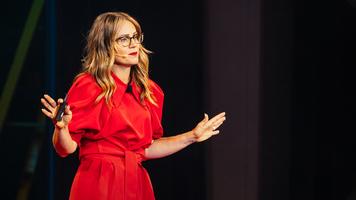
Would you rather stay in your current job until you retire, or change jobs every year? Researcher Amanda Schneider says Gen Z's answer to this question says a lot about the evolving workplace. Sharing data-driven insights on the young workforce, she debunks common misconceptions about Gen Z employees and explains why their preferences are key to...
Amanda Burden: How public spaces make cities work

More than 8 million people are crowded together to live in New York City. What makes it possible? In part, it’s the city’s great public spaces — from tiny pocket parks to long waterfront promenades — where people can stroll and play. Amanda Burden helped plan some of the city’s newest public spaces, drawing on her experience as, surprisingly, an...
Amanda Williams: Why I turned Chicago's abandoned homes into art
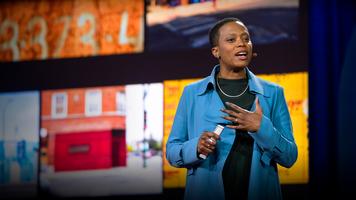
Amanda Williams shares her lifelong fascination with the complexity of color: from her experiences with race and redlining to her discovery of color theory to her work as a visual artist. Journey with Williams to Chicago's South Side and explore "Color(ed) Theory," a two-year art project in which she painted soon-to-be-demolished houses bold, mo...
Avi Reichental: What's next in 3D printing
Tom Teves: A call to end the media coverage mass shooters want
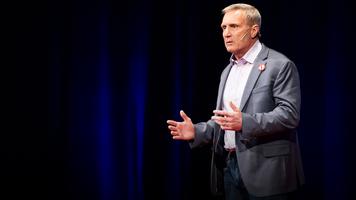
On July 20, 2012, a mass shooting in a movie theater of Aurora, Colorado left the town, and its nation, reeling. To many -- including Tom Teves, who lost his son in the tragedy -- the news coverage that followed focused on all the wrong things. Why did the reporting overwhelmingly fixate on the shooter rather than the lives of the victims or the...
Manoush Zomorodi: How boredom can lead to your most brilliant ideas
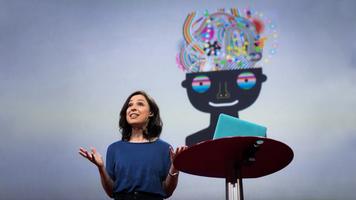
Do you sometimes have your most creative ideas while folding laundry, washing dishes or doing nothing in particular? It's because when your body goes on autopilot, your brain gets busy forming new neural connections that connect ideas and solve problems. Learn to love being bored as Manoush Zomorodi explains the connection between spacing out an...
KC Davis: How to do laundry when you're depressed
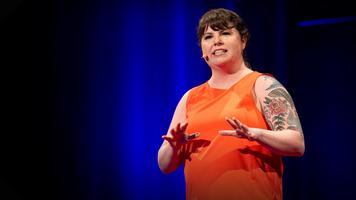
Ever had a hard time doing daily household tasks -- cooking, cleaning, laundry -- and felt like a terrible person for struggling in the first place? Therapist KC Davis is here to flip that negative internalized script with a simple yet perspective-shifting fact that may change your approach to life. Learn a gentler, more practical approach to me...
Julieanna L. Richardson: The mission to safeguard Black history in the US
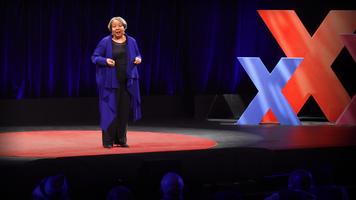
Black history in the US is rich, profound -- and at risk of being lost forever, if not for the monumental efforts of Julieanna L. Richardson. As the founder of The HistoryMakers -- the largest national archive of African American video-oral history -- Richardson shares some of the unknown and incredible legacies of Black America, highlighting th...
The TED Interview: Bill Gates looks to the future
Rob Knight: How our microbes make us who we are
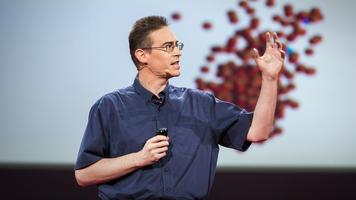
Rob Knight is a pioneer in studying human microbes, the community of tiny single-cell organisms living inside our bodies that have a huge — and largely unexplored — role in our health. “The three pounds of microbes that you carry around with you might be more important than every single gene you carry around in your genome,” he says. Find out why.
John Green: The nerd's guide to learning everything online
Rainn Wilson: Kung Fu, Star Trek and the many paths to spirituality

Do you feel overwhelmed by the complex issues facing our world, not to mention your own personal problems? Spirituality is the key to staying grounded and hopeful -- even for skeptics, says actor and author Rainn Wilson. He explains why it's time for all of us to experience a spiritual shake-up and outlines two paths to tap into your innate wisd...
WorkLife with Adam Grant: How science can fix remote work
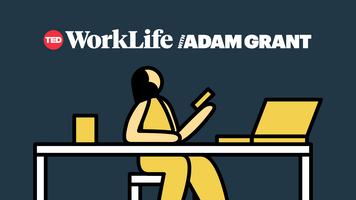
Remote work was a trend that some companies and gig workers were trying out, even as others resisted. Then the pandemic made it an overnight reality for many of us. This feels like uncharted territory, but there's already plenty of knowledge on how to do it well. Learn from someone who has done more remote work than almost anyone on the planet -...
Elizabeth Gilbert: It's OK to feel overwhelmed. Here's what to do next
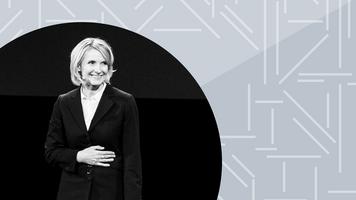
If you're feeling anxious or fearful during the coronavirus pandemic, you're not alone. Offering hope and understanding, author Elizabeth Gilbert reflects on how to stay present, accept grief when it comes and trust in the strength of the human spirit. "Resilience is our shared genetic inheritance," she says. (This virtual conversation is part o...
